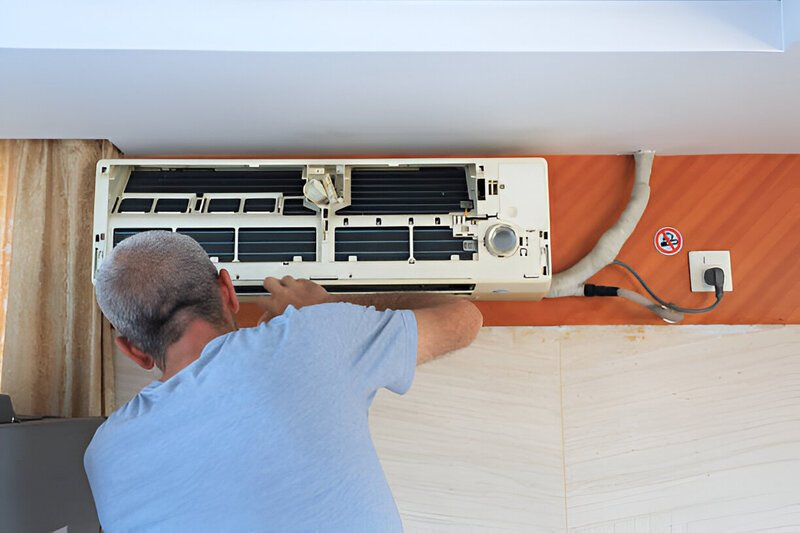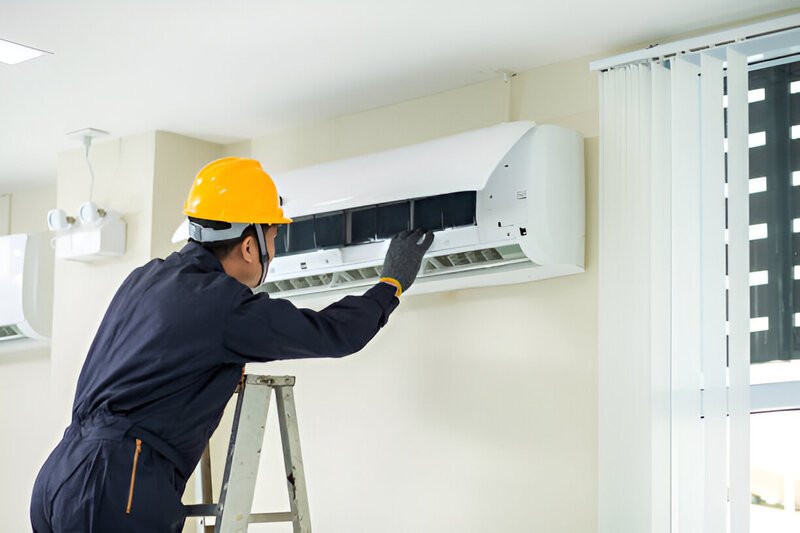How to Understand the Intricacies of Split System Air Conditioner Repairs
As the summer heat reaches its peak, the thought of your split system air conditioner breaking down can be stressful. What would you do if your cool comfort is suddenly interrupted by a malfunction? Have you ever wondered what common issues could affect your air conditioner and how to address them? You are not alone in posing these questions. For homeowners, a malfunctioning air conditioner in the middle of summer is a dreaded scenario. Understanding the intricacies of split system air conditioner repairs can be a lifeline, helping you avoid costly repairs and sleepless nights.
In this blog, we will demystify the various aspects of split system AC repair. Whether it’s knowing when to summon a professional or learning basic troubleshooting skills, this comprehensive guide will provide valuable insights. By the end, you’ll have a better understanding of how these intricate devices work and how to make informed decisions about their care and maintenance, saving both time and money.
Recognizing the Symptoms: When Your AC Needs Attention
Just like the human body, air conditioners often exhibit symptoms before they break down completely. Identifying these early warning signs can prevent uncomfortable scenarios and save you from costly repairs or a complete replacement. Here are some common symptoms that indicate your split system AC needs attention:
- Strange Noises: If your unit starts making unusual noises such as grinding, hissing, or buzzing, these could be signs of mechanical issues or a refrigerant leak.
- Reduced Cooling Efficiency: Is your air conditioner struggling to cool your home as effectively as it once did? A reduction in cooling efficiency can indicate a refrigerant leak, blocked airflow, or a dirty filter.
- Unpleasant Odors: Musty or foul odors coming from your AC could signal mold or mildew growth within the unit. This could also impact your indoor air quality.
- Non-Responsive Remote: If your remote isn’t responding properly, it could be due to battery issues or a problem with the unit’s control board.
- Unexplained Increases in Energy Bills: A sudden spike in your electricity bills could be a sign that your AC is working harder than it should to cool your home, this may signal the need for repair or maintenance.
Addressing these symptoms early can help prevent more serious breakdowns and ensure your air conditioner operates at peak efficiency.
The Usual Suspects: Why AC Breakdowns Happen

There are several reasons why a split system air conditioner might break down, ranging from poor installation to lack of maintenance. Understanding the most common culprits can help you identify potential problems early and take corrective action. Here are some of the usual suspects behind AC breakdowns:
- Faulty Installation: Improper installation can lead to numerous problems, such as improper airflow, refrigerant leaks, or electrical issues. If your unit wasn’t installed correctly, you may experience recurring problems that will require professional intervention.
- Refrigerant Leaks: The material that cools the air in your air conditioning system is called refrigerant, and it can leak. If there’s a leak, your unit won’t be able to cool properly, leading to higher energy consumption and reduced efficiency.
- Sensor Problems: Your AC has a thermostat sensor that measures the air temperature. If this sensor is faulty or misaligned, it can cause erratic behavior, such as the unit running continuously or shutting off prematurely.
- Drainage Issues: If the condensate drain is clogged, it can lead to water damage, mold growth, and an increase in humidity levels in your home.
- Electronic Control Failure: Over time, the electrical components in your air conditioner can wear out. This is especially true if the unit is frequently turned on and off, which can cause the compressor and fan controls to fail.
Identifying the root cause of the problem is the first step toward repairing your unit and preventing further damage.
The Do-It-Yourself Guide: What Repairs You Can Handle on Your Own
Contrary to popular belief, there are several air conditioning issues that you can handle on your own without professional help. While not all repairs should be DIY, some basic maintenance tasks are manageable and can help improve your unit’s efficiency and performance. However, if these tasks don’t resolve the problem, don’t hesitate to get quick split system air conditioner repairs to ensure your system is back in top condition. Here are some simple chores you can undertake on your own:
- Cleaning or Replacing Filters: Dirty filters restrict airflow, causing your AC to work harder than necessary. Regularly cleaning or replacing filters can improve airflow and reduce energy consumption.
- Checking the Thermostat: If your air conditioner isn’t cooling properly, make sure the thermostat is set correctly. If necessary, replace the batteries in your remote or thermostat unit.
- Inspecting Circuit Breakers: If your AC isn’t turning on, check your home’s electrical panel to ensure the circuit breaker hasn’t tripped. Resetting the breaker can often solve the issue.
- Clearing Debris from Outdoor Units: The outdoor unit of your split system can become clogged with leaves, dirt, or debris. Clearing away obstructions can improve the efficiency of your system.
While these tasks are simple, they can have a big impact on your air conditioner’s performance. However, for more complex issues, it’s best to leave the repairs to the professionals.
When to Call in the Calvary: When You Need an AC Professional
Even though there are some basic tasks you can handle on your own, there are times when calling in a professional technician is the best course of action. If your air conditioner is experiencing serious problems, such as a refrigerant leak, electronic control failure, or compressor issues, it’s time to call in a business expert. Attempting to repair these issues on your own could result in further damage or even injury.
A professional AC technician has the knowledge and tools needed to diagnose and fix complex problems, ensuring your unit operates safely and efficiently. Plus, regular maintenance from a certified technician can help extend the life of your air conditioner and prevent future breakdowns.
Pros and Cons: The Repair or Replace Dilemma
At some point, you may face a dilemma: should you repair your split system air conditioner or replace it with a new one? There are pros and cons to both options, and the right choice depends on factors such as the age of your unit, the cost of repairs, and the efficiency of your current system.
- Repairing: If your air conditioner is relatively new and the repairs are minor, fixing the issue may be the best option. Repairing your unit can save you money in the short term and prolong the life of your system.
- Replacing: If your unit is old and requires frequent or costly repairs, replacing it with a more energy-efficient model may be more cost-effective in the long run. A new unit can reduce your energy bills and provide more consistent cooling.
Making an informed choice will be aided by weighing the advantages and disadvantages of each choice.
Future-Proofing: Keeping Your Air Conditioner in Prime Condition
Preventative maintenance is the key to keeping your split system air conditioner in prime condition. Regular filter changes, seasonal checks, and professional servicing can help extend the life of your unit and prevent major breakdowns. Here are a few maintenance tips to future-proof your air conditioner:
- Schedule Regular Professional Maintenance: A yearly check-up from a professional technician can identify potential problems early and keep your system running efficiently.
- Clean the Filters: Airflow can be restricted and efficiency decreased by dirty filters. Regularly cleaning or replacing the filters can improve performance and extend the life of your unit.
- Clear Debris Around the Outdoor Unit: Keep the area around your outdoor unit free of leaves, dirt, and debris to ensure proper airflow and prevent overheating.
By following these maintenance practices, you can enjoy reliable cooling for years to come.
Conclusion
Understanding the intricacies of split system air conditioner repairs can be a game-changer for homeowners. Recognizing the warning signs, knowing what repairs you can handle on your own, and understanding when to call in a professional can save you time, money, and frustration. Deciding whether to repair or replace your unit requires careful consideration, but with the right knowledge, you can make an informed decision. Lastly, regular maintenance is essential for keeping your air conditioner in top condition, ensuring optimal performance and longevity. So, take charge of your cooling system and stay cool all summer long!






